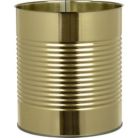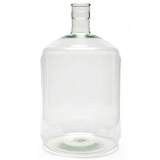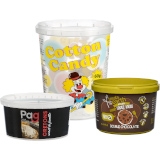
FDA Compliant vs Approved: What is the Difference?
For the health of customers and people close to them, it is important for companies to make products that follow guidelines and rules from governing agencies. This can differ slightly from industry to industry, depending on regulations and the the products that are being created.
There have been a few prominent terms over the years surrounding the FDA: FDA Compliant and FDA Approved. It is important from a company's perspective to understand what these terms mean and what impact they can have. Read further or watch the video below to get more of an understanding on these familiar terms.
Before we discuss the two seemingly interchangeable phrases, it is important to talk about the FDA, what it does and how they play a role in health and safety.
FDA: The Food & Drug Administration
Known as a government agency, the US Food & Drug Administration helps regulate products across a wide variety of industries, including food, tobacco, cosmetics, pharmaceuticals and more. In their own words, they work to "create a world where health equity is a reality for all." Health equity can be the wide range of products they approve or the important up-to-date information they release to the public, with food recalls being a prime example. Additionally, the FDA has been working recently on the ongoing COVID pandemic and baby formula shortages.
A couple of the administration's major tasks are approving products before they enter the market or regulating products that already exist, ensuring that they are used as intended. The FDA has clear distinctions between the approval of a product that hits the market and materials that may be used for food contact. Once an item is reviewed by the FDA, it can fall into one of three categories: FDA Approved, FDA Compliant and Food Grade.
FDA Approved
Certain products and devices will be labeled as FDA Approved. This means that it has gone through a multi-step review process set by the FDA to certify its purpose or uses. With that being said, it is important to note that not every product is required to be FDA Approved.
According to the FDA, products in the food, pharmaceutical and medical industries are required to have certain products that are FDA Approved. Some of these include medical devices, new prescription drugs and food additives. The food additives part can refer to ingredients or certain plastics. These plastics are reviewed and can be FDA Approved for food contact.
BPA is an example of an FDA Approved chemical compound that is used to make plastics.


FDA Compliant
In addition to the FDA approving new products, the administration works to regulate containers, manufacturing processes, facilities and more in specific industries, such as food and beverage.
For food safety, the FDA must examine and approve packaging materials that come into contact with foods that may be consumed. The plastic that is used to create the container would be considered FDA Approved, but the container would be labeled FDA Compliant if it follows food contact regulations. This is determined based on the plastic condition and the process used to create the container.


Cosmetics
Another industry that can fall under this category is cosmetics. According to the FDA, there is no FDA Approval needed for cosmetic products (except in the case of color additives). So, they are FDA Compliant if the products that go into the market are used and labeled as intended, with the administration able to step in if the opposite occurs. The FDA are well known for regulating products and releasing up-to-date information about different products across industries.
The main purpose of this distinction between FDA Approved and FDA Compliant is to ensure that companies are creating safe products for customers, as observed by FDA officials.
Difference Between FDA Approved & FDA Compliant
At first glance, it can be easy to assume that FDA Compliant and FDA Approved are similar and interchangeable. Here are some clear distinctions between the two.
FDA Approved
- "Approved" for intended uses or food contact
- The product or device goes through an extensive review process for safety and uses
- Examples include: medical devices, pharmaceuticals/medical drugs, specific plastics
FDA Compliant
- "Compliant" with FDA rules and regulations
- Created with materials that are FDA Approved
- Examples include: round and tamper evident containers, plastic bottles and jars and glass bottles and jars
Food Grade
When it comes to products that are intended for consumption, there is a third term that is separate from the FDA that companies tend to use for their products. That phrase is know as Food Grade.
Food Grade, or food-grade, is a phrase not connected to the FDA that holds companies accountable to create products and packaging that can hold food. It is possible that these materials and products can be FDA compliant and food grade as long as there are not other materials added that are not safe for consumption. One example can be a wide variety of dyes and colorings.
Tin/Metal
The Cary Company offers food grade tin and metal cans that hold a wide variety of items. This type of packaging and material is popular for dry products, including coffee, tea and oils as top choices.


So...What Materials are FDA Compliant?
Now that we have gone over the distinctions between common terms surrounding the FDA, The Cary Company offers a wide variety of FDA Compliant and food grade products made of different materials.
PET
Known as a plastic with a high scratch and shatter resistance, Polyethylene Terephthalate (PET) is a popular choice in the beverage and spice industries. PET is semi-rigid, light weight and is used in beverage bottles, spice jars and honey bottles among others.


HDPE
Containers and packaging made of High Density Polyethylene (HDPE) are versatile for a range of industries, from chemical and automotive to food and pharmaceutical. It is a durable and chemically resistant plastic that is commonly used for bottles, small containers and IBC Totes.


PP
Polypropylene (PP) is a translucent plastic with good impact resistance, excellent chemical resistance and an ideal choice for hot fill applications. It is commonly used in the fast-food industry for tamper evident and round containers, tubs and jars.


Glass
Finally, The Cary Company offers safe glass packaging. It is versatile throughout industries and is an eco-friendly and all-natural material. Whether it is in a bottle or jar, glass can hold product ranging from beverage and sauces to fruits and vegetables.


View Our FDA Compliant Containers!
The Cary Company offers a wide variety of widely considered FDA Compliant and food grade products for your business and customers. Choose the right one for your food or beverage item today!





